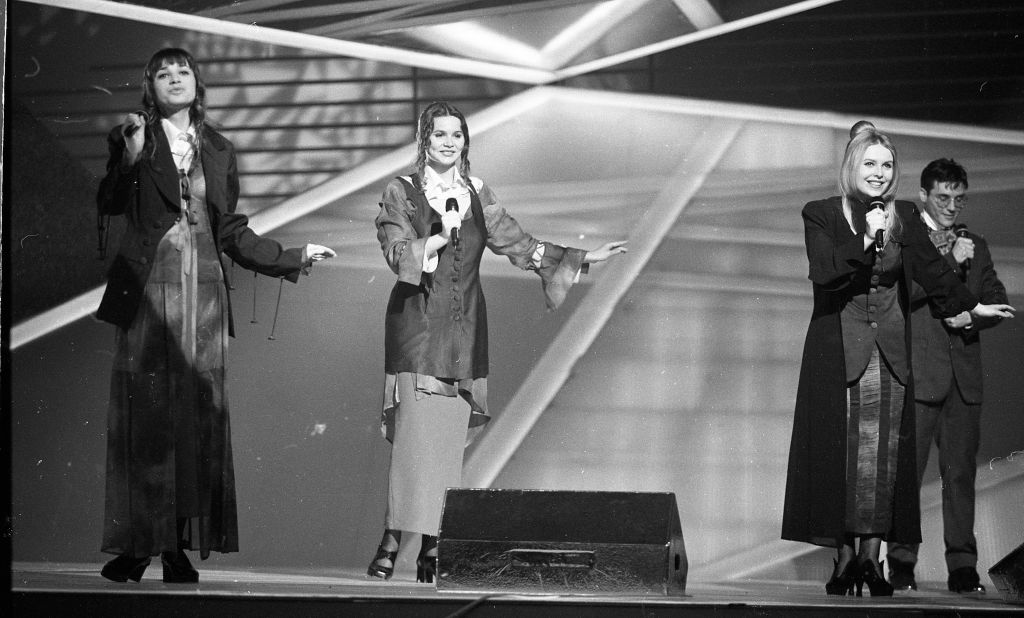
You might have noticed that the has descended on this country, with thousands to for the first time in 25 years.
The UK was given the honour of hosting the continent’s biggest singing competition after 2022 winners were unable to host the event due to the ongoing war with .
the chance of staging this year’s show was offered to the UK – with viewers set to be treated to an event which celebrates the bets of Ukrainian and homegrown talent.
This year our hopes rest – and her place in the grand final on May 13 is already assured.
Only six countries are already pre-qualified for the main event though, with the line-up being determined by two semi-finals on May 9 and 11 – which this year are being shown on BBC One for the first time.
With the semis making the leap from BBC Three to a primetime BBC One slot many viewers may be tuning in for the first time – but what happens in a semi-final and why do we have them?
Here’s what you need to know….
Why do we have Eurovision semi-finals?
Eurovision semi-finals were introduced to accommodate the increasing number of countries who wanted to take part.
The number of willing participants began to increase in the 90s following the fall of the Berlin Wall and the collapse of communism across Europe – with many newly independent countries wanting to take part.
They were welcomed into the fold at the 1993 contest, although initially the potential newcomers took part in a pre-qualifying contest which saw the top three progress to the final in Millstreet, Ireland.

In this instance Croatia, Bosnia and Herzegovina and Slovenia fought off competition from Hungary, Slovakia, Romania and Estonia, and all made their debut that year.
This was replaced the following year by a relegation system which saw the bottom seven countries from the previous year eliminated and forced to sit out proceedings in 1994.
This was then changed again in 1996, to see all contenders except host nation Norway having to undergo a preselection process decided by a jury vote.
When this proved unpopular it was replaced yet again in 1997 – just to confuse matters more by a new relegation system was used which took average points of each country over the previous four years into account.
This continued until the introduction of the semi-final system.
When was the first semi-final?
The first ever Eurovision semi-final took place at the 2004 contest – and from then until 2007 only one semi-final took place.
During this time the 10 highest-scoring countries from the previous year (including the winner and host nation) automatically qualifying for the final, along with the ‘Big Four’ nations – France, Germany, the UK and Spain – who automatically get a place in the final as the contest’s biggest financiers.

The semi-final would see the top 10 placed countries – chosen by public vote – winning the 10 remaining places in the final.
This was expanded to a two semi-final system in 2008, with the number of pre-qualified countries reduced to the ‘Big Four’ (becoming the ‘ Big Five’ after Italy rejoined the contest in 2011 from a 14-year absence) and the previous year’s winner/host nation.
How do the semi-finals work?
The semi-finals take place on the Tuesday and Thursday before the grand final, and see each of the non-qualified countries perform, with the top 10 from each heat advancing to the grand final.
The remaining countries are eliminated from the contest and do not perform again on the Saturday night (although they can still vote in the grand final).
Those who do reach the final are revealed in a random order – with the actual points from the semis only made public after the grand final.
The line-up for each semi is determined by a World Cup style allocation draw in January, with all of the countries allocated separate pots -which are seeded to keep countries with a ‘significant history’ of voting for one another apart, thus giving everybody an even chance of making it to the final.
In recent years the qualifiers have been decided by a mix of jury points and televotes, although the system has been changed this year, with the semis being determined by public vote only, and the jury system only in operation in the final.
Since the start of the semi-finals the contest has enjoyed an influx of new countries who had not previously taken part.
These include Albania, Azerbaijan, Belarus, Czechia, Serbia, Montenegro (who previously competed as one country in 2004 and 2005), Armenia and Australia.
Most countries who take part in the semi-finals have at some point qualified for a final although some more often than others.
Ukraine remains the only country with a 100% qualification rate, after Australia, the only other nation who had qualified every year, crashed out in the semis in 2021.
To date, Andorra remains the only country to have competed in Eurovision never to have reached the grand final, after failing to qualify from 2004-2009 before dropping out of the contest altogether.

Monaco also failed to qualify from any of the semis they took part in between 2004 and 2006, while Slovakia, who competed from 2009 until 2012, have also missed out.
However both have previously been in the final, having competed in Eurovision before the introduction of the semis.
Can the UK vote in the semi-finals?
Although the UK does not have to compete in the semi-finals, each of the automatic qualifiers in one of the semis, which is once again decided during the allocation draw.
This year the UK is voting in the second semi-final on Thursday May 11. You’ll be able to vote via phone or text, with details of how to do this revealed on the night.
Alternatively, you’ll be able to vote via the Eurovision Song Contest app.
The Eurovision Song Contest semi-finals are on BBC One on Tuesday May 9 and Thursday May 11 at 8pm. The grand final is on BBC One on Saturday May 13 at 8pm.




















